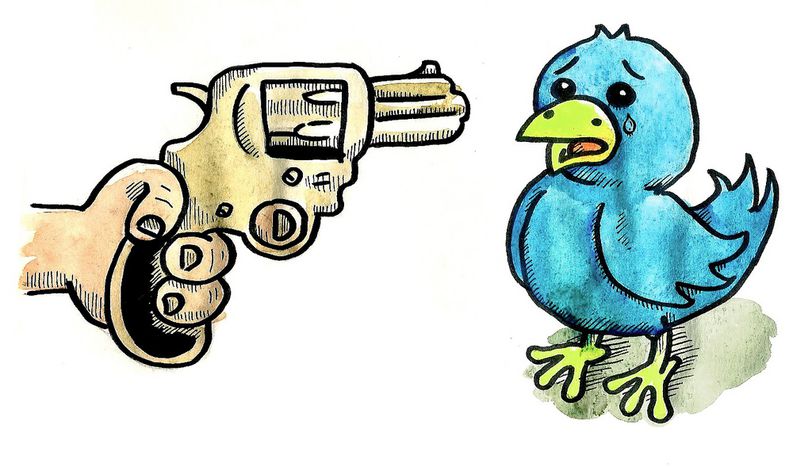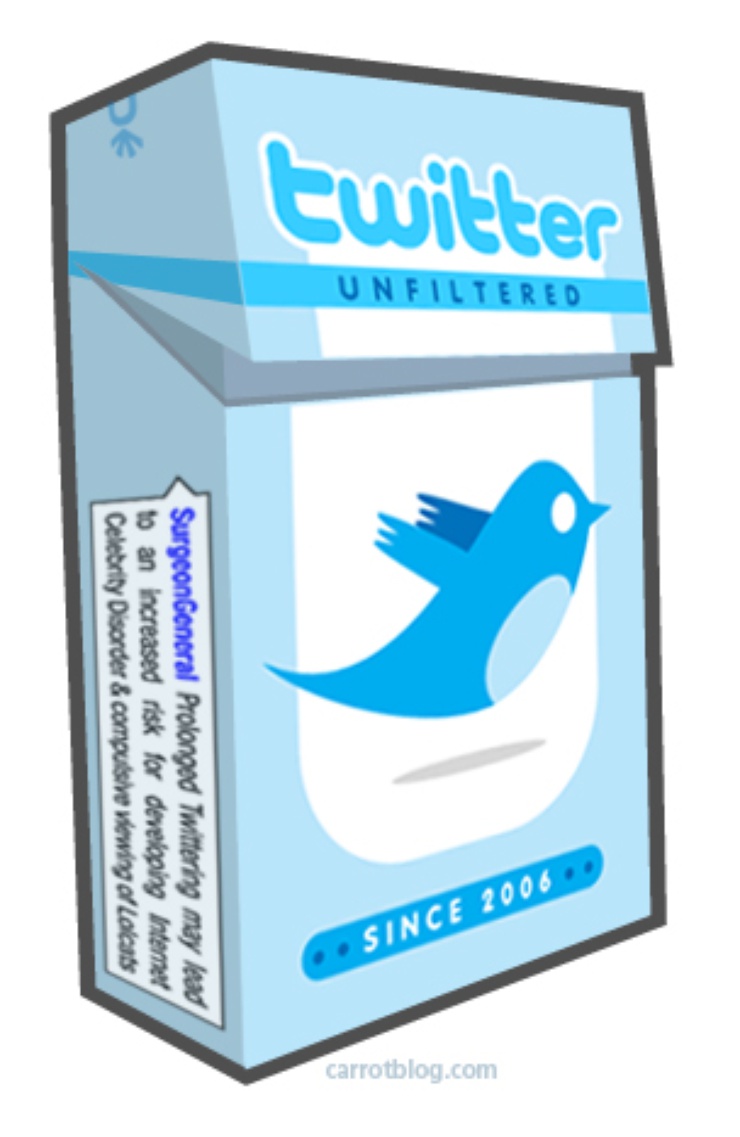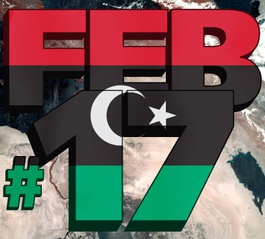
Spanish user describes 'big bad twitter'
Published on
Translation by:
 Elaine Jordan
Elaine Jordan
‘21st Century Agora’, the ‘New Public Sphere’ and the ‘Fifth Power’ - the micro-blogging service has been labelled many things since its launch in 2006, some of which seem grandiose and others which don’t sound right at all. Labels for twitter are a variation of the following three themes: that it is a place, a medium and a tool
It acts as a barometer for the internet, a driving force behind social and political revolution, a voice for companies and individuals alike. It prods our conscience and mobilises society; it’s a way to supposedly soothe declining democracies and is a corrosive acid for dictatorships. It acts as a receptacle for videos and photos, a chain for transmitting solidarity against catastrophic events and a platform for the exchange of all sorts of information. Can twitter define public opinion?
@100 million people
Officially, twitter is defined as a ‘place’. It is a virtual space where people worldwide can meet in real time to find out what is being said about topics which interest them. Sign up to Twitter if you want to know current trends in different geographical areas. Twitter is also an extremely busy place, with 100 million active users and availability in 17 languages, including Chinese, Hindi, Tagalog and Malay. Compared with two million tweets a day in January 2009, September 2011 saw approximately 200 million tweets sent. It’s also possible to sign up as a user who observes but doesn’t join in. 40% of active twitter users only log on to find out what’s ‘In’, without actively sending their own tweets or resending tweets from others (‘retweets’).

Here, companies, governments, individuals, communication channels, journalists, activists, consumers and celebrities can all interact with each other. There is a mix of publicity tweets, those with private messages, irrelevant tweets and sponsored trends. They are not all ‘Political Tweets in 140 characters’. For example, there’s nothing better than following the Eurovision song contest via twitter. Remember that twitter users represent only part of society with internet access and therefore cannot claim to be a truly reliable source of global public opinion. ‘Discussion’ amongst twitter users can end up having either a significant or minor impact upon other areas, for example, in the world of politics.
Can freedom of expression bring about revolutions?
This new medium - the private service of microblogging - is referred to as a way of instantly spreading information and of generating opinion in parallel with those traditional means of communication. Traditional means of communication might well have feared twitter; instead they have joined forces with it. A revolution has taken place amongst these traditional means of communication as they use twitter for spreading facts and as a source for locating hot news stories. This service has provided an undeniable boost to everyday journalism.
 Thus, twitter’s growing impact in this area is not only down to the rapid increase in users and tweets. It also owes much to the role played by extraordinary events such as the post-electoral revolution in Iran in 2009, spanishrevolution/ 15M (the 2011 Spanish protests), the use of twitter by governments and politicians, jan25 (the 25/1/2011 revolution in Egypt), as well as the other revolutions arising from the Arab Spring. Whilst these events did not start solely because of twitter, it was this virtual ‘place’ that provided the kick-start which allowed the world to know what was happening. It also allowed them to sidestep the censorship laws governing communication channels in those countries.
Thus, twitter’s growing impact in this area is not only down to the rapid increase in users and tweets. It also owes much to the role played by extraordinary events such as the post-electoral revolution in Iran in 2009, spanishrevolution/ 15M (the 2011 Spanish protests), the use of twitter by governments and politicians, jan25 (the 25/1/2011 revolution in Egypt), as well as the other revolutions arising from the Arab Spring. Whilst these events did not start solely because of twitter, it was this virtual ‘place’ that provided the kick-start which allowed the world to know what was happening. It also allowed them to sidestep the censorship laws governing communication channels in those countries.
Beware: a tool under development
Twitter is frequently referred to as a ‘tool’. It itself proclaims to be a free tool with a secret algorithm that is applied to the flow of tweets generated by its users. Considering how quickly topics can spread and grow, this algorithm is continuously reviewed as it decides upon trends and the most up-to-date topics. Ultimately, twitter is a place, a channel and a tool. We use it online to participate in both general and specific discussion. We use it to participate in the ‘political evolution’. Political groups use it as a way to gauge public opinion, perhaps to some past event. We become fearful when we think that twitter might be used by ‘dark forces’ as a way of controlling a dissident population or being manipulated by private interests hidden behind an algorithm. These fears could in fact be applied to any powerful instrument. Nobody is going to praise, or in this case fear, a tool in itself. The fear comes from what this tool can potentially do.
Translated from ¿Quién teme al Twitter feroz?


